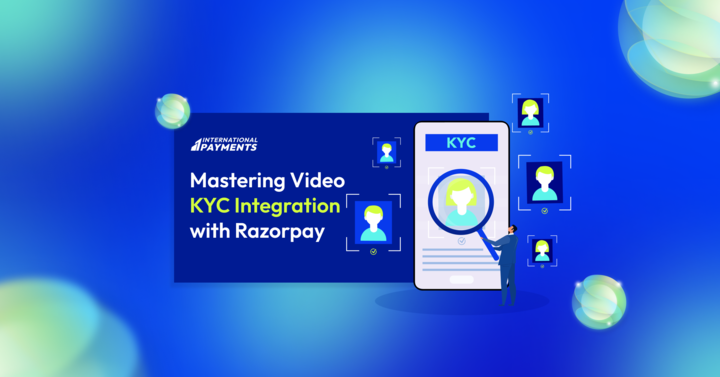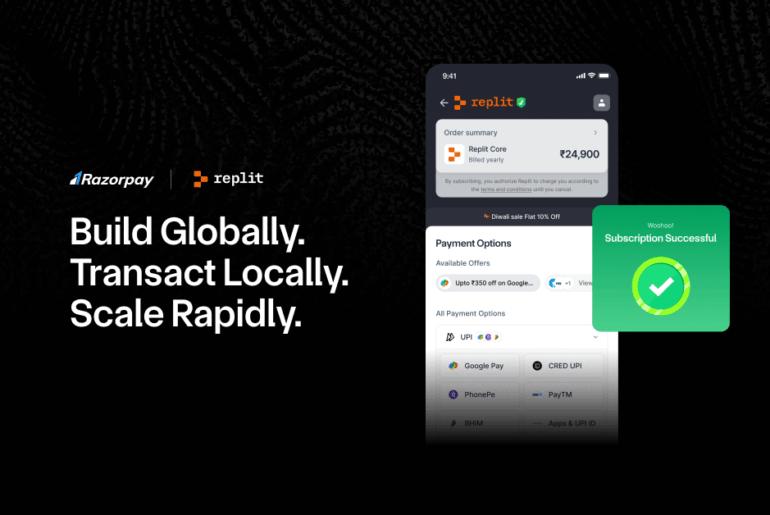Navigating regulatory requirements is crucial for businesses aiming to expand their reach across borders. Razorpay has taken a significant stride toward global compliance for export payments with the recent integration of Video KYC (Know Your Customer) into its onboarding process. This initiative makes Razorpay one of the first few payment aggregators that adhere to Payment Aggregator Cross Border (PA-CB) guidelines.
Navigating PA-CB Guidelines: A Simplified Overview
The recent circular issued by RBI underscores the importance of enhanced due diligence for cross-border payment aggregators. According to the PA-CB guidelines, onboarding international merchants mandates strict compliance with RBI’s Master KYC directions.
This necessitates thorough scrutiny, including a Video KYC session with the authorized signatory and the collection of self-attested KYC documents. Let’s break down the key aspects of these guidelines:
- What are PA-CBs?
Payment Aggregator Cross Border (PA-CB) entities facilitate cross-border payment transactions for the import and export of permissible goods and services conducted online. In simpler terms, they help businesses engage in international transactions securely and efficiently.
- Authorization Requirements
- AD Category-I Banks: Banks operating as AD Category-I do not require separate approval from the RBI to engage in PA-CB activities.
- Non-Banks: Entities providing PA-CB services need to apply for authorization from the RBI. They must apply for authorization by April 30, 2024, and adhere to the guidelines within three months of the circular’s issuance.
- Compliance with Guidelines
Entities engaged in PA-CB activities, both existing and new, must ensure compliance with guidelines related to governance, merchant onboarding, customer grievance redressal, and technology recommendations. Non-compliance may lead to refusal of authorization.
- Net Worth Criterion
Non-bank PA-CBs must maintain a minimum net worth of ₹15 crore at the time of application, increasing to ₹25 crore by March 31, 2026.
Failure to meet these requirements may result in winding up PA-CB activities by July 31, 2024.
- Operational Requirements
PA-CBs must maintain separate Import Collection Accounts (ICA) and Export Collection Accounts (ECA) with AD Category-I banks.
Transactions must comply with Foreign Trade Policy regulations, and due diligence is required for both merchants and buyers.
- Regulatory Oversight
PA-CB transactions are subject to reporting and reconciliation requirements under the Foreign Exchange Management Act (FEMA).
PA-CBs must register with the Financial Intelligence Unit-India (FIU-IND) as part of the authorization process.
- Transition and Adaptation
Existing non-bank PA-CBs must register their PA-CB activity with the RBI and seek approval if they wish to continue.
Any changes in the below activity categories or commencement of new activities require prior approval from the RBI.
- Export only PA-CB (PA-CB-E)
- Import only PA-CB (PA-CB-I)
- Export and Import PA-CB (PA-CB- E&I)
- Other Considerations
PA-CBs must ensure compliance with all other RBI instructions and regulations, including those related to maximum transaction values and reporting.
Master KYC Compliance Essentials
To align with RBI’s Master KYC directions, Razorpay has implemented a comprehensive approach to customer due diligence. This includes:
- Collection of Certified (Self-attested) Customer Due Diligence and KYC Documents: Razorpay ensures merchants provide essential KYC documents relevant to their business type. These documents are verified and certified to meet regulatory standards.
- Video KYC of the Authorized Signatory: As a crucial step in the onboarding process, Razorpay conducts Video KYC sessions with authorized signatories to verify their identity and ensure compliance with regulatory requirements.
Razorpay’s Video KYC: Your Key to Seamless International Payments
In response to these regulatory imperatives, Razorpay swiftly adapted by integrating Video KYC into its merchant onboarding process. This streamlined approach allows merchants to complete the KYC process conveniently through the Merchant Dashboard – a self-serve platform that empowers businesses to navigate compliance requirements efficiently.
Razorpay’s proactive approach to compliance has delivered significant results. With the adoption of Video KYC, the company has successfully onboarded many merchants, marking a significant milestone towards PA-CB compliance. This makes Razorpay one of the first non-bank identities to comply with PA-CB guidelines and enables merchants to be compliant much ahead of time with access to MoneySaver Export (ACH/SWIFT/SEPA transfers), Card payments, and alternative payment methods (APMs) like Trusty, cards, merchants gain versatile payment capabilities.
Conclusion
Razorpay’s dedication to regulatory compliance and customer-centric innovation has indeed set a benchmark in the fintech landscape. With the adoption of Video KYC and adherence to PA-CB guidelines, Razorpay not only ensures trust and transparency but also paves the way for businesses to explore global expansion avenues confidently. By embracing these practices, Razorpay demonstrates its commitment to facilitating seamless transactions and fostering growth opportunities on a global scale.
Want to get started on your journey of global expansion? Sign up with us on International Payments today!


